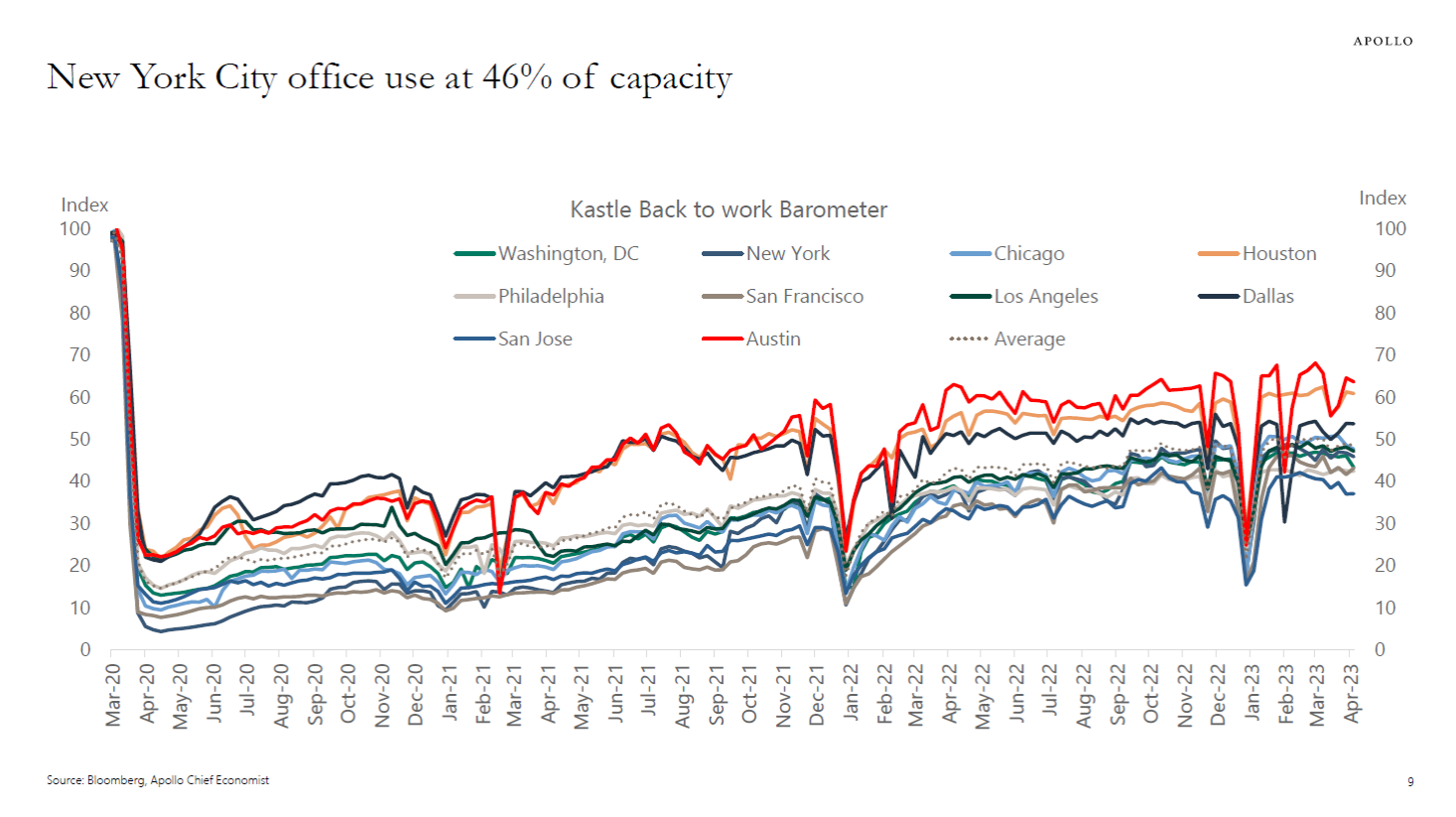I mentioned a few weeks ago how much better Europe‘s return to office rate was doing versus ours: 90+% RTO, while the USA is ~60%. I cannot speak to Europe, but that U.S. number is an average across all regions, industries, age groups, etc. In some parts of the country, it is appreciably higher or lower; as you might imagine, it varies greatly.
The biggest drag? Big cities.
As Torsten Slok’s chart above shows, the biggest metropolitan employment centers run lower than the national average — which is about 50%. The range is surprisingly wide, from mids-30s to upper-60s: Austin,1 Texas is in the mid-60% range; San Jose is in the high-30%; San Francisco, D.C., and Philidelphia are low-40%. New York City, the biggest US metro center, is one of the laggards with an office occupancy rate of 46%.
Hybrid work models are now well-established. This leads Slok to ask a fascinating question: Is 50% the new permanent level in most metropolitan areas for RTO?
It just might be…
Previously:
Of Course WFH is “Really Working” (March 29, 2023)
WFH vs RTO (February 16, 2023)
Why Aren’t There Enough Workers? (December 9, 2022)
Sorry, We’re Closed (March 13, 2020)
__________
1. One of the funniest things a client ever said to us was that “Austin is the blueberry smack dab in the middle of Texas’ raspberry pie.” I really love that line…


